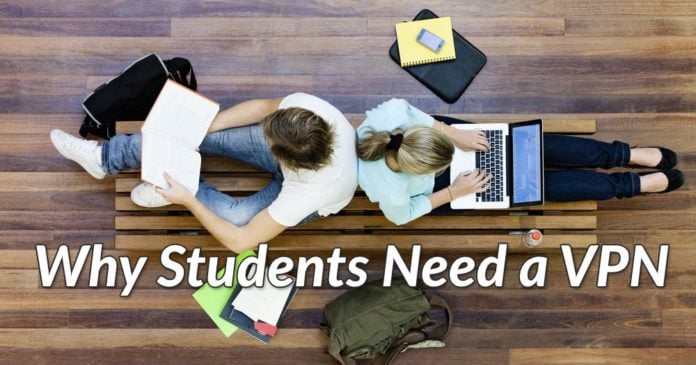
Today’s students probably have a harder time focusing than previous generations. There’s Facebook, YouTube, various messaging apps and so on — all of which make it easier than ever to be distracted.
Modern schools figured out this and have decided to be proactive, not just to keep students focused on the task at hand, but also to avoid any potential liabilities that could stem from, say, uncontrolled spread of, ahem, certain photos and videos. So, many schools are now blocking access to parts of the internet that they deem irrelevant to studies. This may include, but is not limited to, websites such as YouTube, Facebook, Instagram, and Snapchat, as well as popular streaming services like Netflix, Hulu, and HBO.
While we understand this move, we also like our freedom and can understand why students are finding their way around these limitations. And that’s where a VPN enters the picture…
A VPN can unlock all the internet for students
Pretty much every major VPN can unblock school-imposed restrictions and allow students to freely roam across the world wide web. Whether they want to check in with friends on Facebook, stream movies from Netflix, or even watch an educational video on YouTube — a VPN could help students out.
We can understand schools’ decisions to block access to some websites but we also think it is up to every individual student to decide what is good for him or her. Also, it’s not like they are studying at all times — what about a lunch break or when they have a free period? Why not use that time for entertainment?
Heck, we also think that some websites like YouTube should not be blocked in the first place. While there is a lot of garbage on YouTube, it also has a ton of useful clips that could actually help students advance.
With VPN, students don’t have to deal with any sort of limitations, with the service providing them with a different IP address to bypass all kinds of restrictions. For what it matters, this is also the way people in high-censorship countries get access to real news.
However, some schools have learned this and started to block VPNs. This is not a problem for people using the best VPNs out there — cause those services continually buy new IP addresses — but it is a problem for free solutions. Simply put, these free VPNs can’t get the job done.
A VPN can do much more
In addition to helping students unblock restricted content, a VPN can do much, much more. For start, it will let you anonymously surf the web so that major corporations and governments can’t track your online whereabouts. This, in turn, will provide you with access to other websites and services that could otherwise be outside of your reach — think Facebook, Twitter, YouTube, Snapchat, as well as popular streaming sites like Netflix, Hulu, BBC iPlayer, Disney+ and so on. Furthermore, a VPN will encrypt all your online data, thus shielding you from hackers and spies.
A VPN app can be installed on your computer(s) and other devices like smartphones and tablets. Also, some services include router support letting you protect your entire network so that other devices like smart TVs, gaming consoles and streaming boxes also benefit from a more secure connection. This is important while you’re home or on campus.
To sum it up, we think everyone should run a VPN app on his/her computers and mobile devices — whether we’re talking about students or not. We suggest you start by checking our list of Best of the Best VPNs. All of the services there offer top-notch features and you can hardly miss by choosing any one of them. So check out that page to unblock the internet and regain your privacy along the way.
